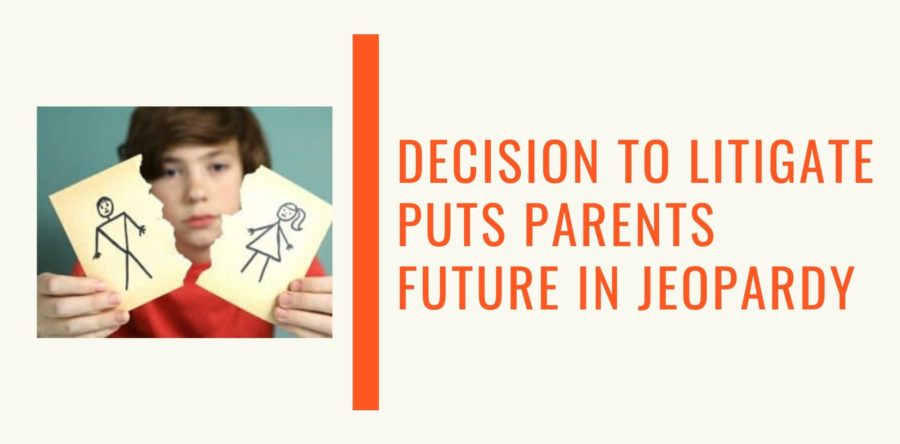The below blog is a response from IACP Board Member and MCT Participant, Robert J. Merlin, Esq. in response to Can COVID-19 Impact My Custody? by MCT Participant, Joryn Jenkins, Esq.
A recent litigated divorce resulted in a judge entering an emergency order in which a minor child was taken away from a mother, who is an emergency room doctor. You may have heard of the case: Theresa Greene v. Eric Greene, a matter pending in Miami, Florida. The father’s attorney filed an emergency motion in which he asked the judge to prohibit the Greene’s daughter from spending any time with the mother because of her potential exposure to COVID-19. The trial judge entered a temporary order prohibiting the mother from having the child for an indeterminate amount of time without any evidence being presented to the judge. The mother filed an appeal with the Florida Third District Court of Appeal, which granted a stay of the trial court's order on April 14, 2020. The appeal will be heard on an expedited basis.
As a result of Dr. and Mr. Greene choosing to litigate instead of using the Collaborative Process, the couple is spending untold tens of thousands of dollars on attorneys, and their private affairs are open to public scrutiny because the court records of virtually all divorces are open to the public. That is how the media have been able to cover this story. The court record reflects that the Greene’s have had a very contentious relationship, but that relationship has now gone viral because of the court filings. Also, no matter how much money Dr. and Mr. Green earn or how wealthy they are, money is going to be spent on multiple attorneys instead of being preserved for their daughter.
Whenever parties litigate, they choose to expose their private matters to the public and they gamble on what the trial judge is going to order. Some judges are excellent, but all of us are human and even judges make mistakes. That is why there are two levels of appellate courts in Florida and in most jurisdictions in the United States.
Couples who choose to resolve their differences respectfully and privately through the Collaborative Process virtually never have to deal with judges making a mistake. The couple controls their own destiny and the destiny of their children. Had Dr. and Mr. Greene been in the Collaborative Process (both attorneys have been trained in the Collaborative Process), they could have convened the Collaborative professionals to discuss the issue that Mr. Greene had with the child potentially being exposed to COVID19. They could have resolved their dispute privately and completely focused on the best interests of their daughter.
As a result of their decision to litigate, the entire family is subject to international scrutiny, not to mention the money that has been and will be spent on lawyers, instead of their daughter. Their poor child will now have to go through life knowing that the intimate details of her childhood have been exposed to the public. How many children are going to confront the child with this very traumatic experience? Some people are now passing judgment on Dr. Greene for possibly exposing the child to an unhealthy situation and some people are passing judgment on Mr. Greene for taking the child away from her mother. No matter what, the decision to litigate has resulted in a very bad situation for the Greene family and trauma for their daughter, which could have been avoided by using the Collaborative Process.
Just because the court system is available to handle a divorce does not mean that is the best way to handle a divorce. The Collaborative Process is available in the United States and in at least 24 other countries all over the world. Mature and thoughtful couples can resolve all of the issues involved in their divorce through the Collaborative Process, which is a way to negotiate a complete resolution of all issues involved in the divorce in a private and respectful way, without anyone telling the couple how they must resolve everything, which is what a judge must do in court.

Known for helping clients reach settlement, Robert J. Merlin is committed to helping his clients to resolve divorce and other family law issues in the least adversarial ways possible. Advocating for the best interests of the entire family, Bob applies his skills in Collaborative Law, mediation and direct negotiation to assist clients to attain agreements and stay out of court.
Find out more about Robert J. Merlin by checking out his website www.MerlinLaw.com




The Greene case is just the latest example of why the collaborative approach is always best. I feel very fortunate to have had a family law professor 35 years ago that understood this concept, even though it didn’t have a name yet. He once gave our class the anatomy of a divorce in the most straight-forward terms which I still use today, especially when speaking to clients for the first time. Paraphrasing his description, he said a divorce is when two people who can no longer agree on anything have to swallow their pride and anger long enough to work together to reach a result, often for the good of their children, because if they can’t, they will both have to spend a few thousand on lawyers who (if they are good lawyers) will try to get them to reach pretty much the same result. If that doesn’t work, they will have to spend thousands more to litigate their case, and after hours of discovery and mediation, hopefully reach a similar result. If that doesn’t work, they will spend thousands more to go to trial before a judge who doesn’t know the parties from Adam (or Eve), and has to make a decision about their lives after a few hours of testimony. Then they will both be sorry with the result they get. Does that make any sense? Of course not. That is why I always try to get my clients to remember their spouse was a person whom they once loved enough to want to spend the rest of their lives with, and that they will have to work with after the divorce because of their kids for a while still. Sometimes the anger runs so deep its hard to get passed it, but I have to say I am very disillusioned by some of the younger lawyers now practicing in this field. They don’t care about their clients or reality. Too often I am faced with their attitude that its not time to settle a case until the client runs out of money. Especially when they can use the anger to generate a fee. They encourage, even demand the parties not speak to each other. They spend the entire retainer on discovery when 99.9% of the time both parties know pretty much what they and their spouses financial situations are and the matter should be settled quickly. It is such a breath of fresh air to find a lawyer on the opposite side of a case who cares at least as much about their client as they do about their fee. Collaborative resolutions are the only ones that make sense.